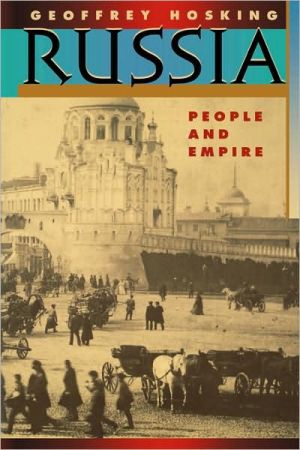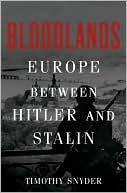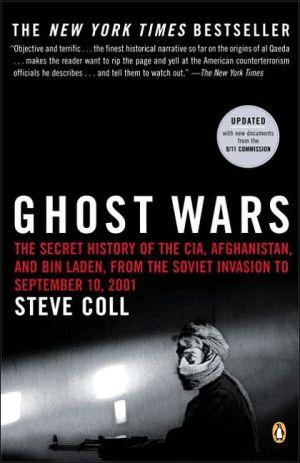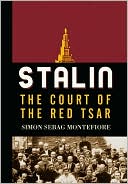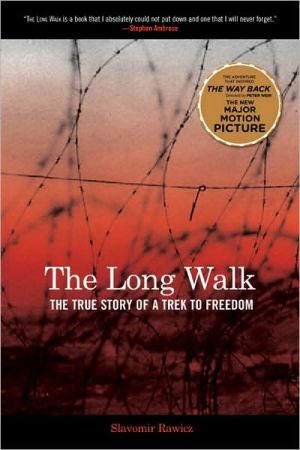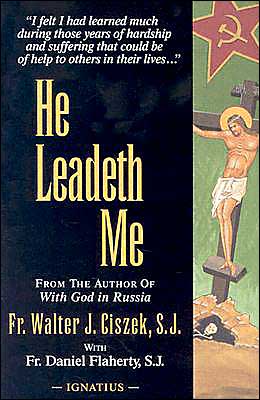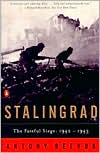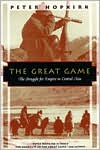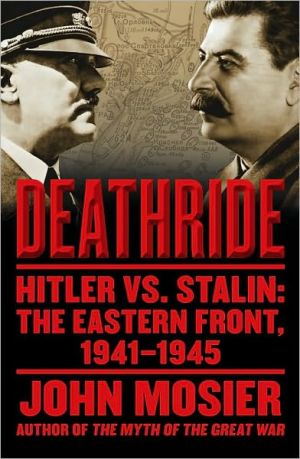Russia: People and Empire, 1552-1917
The Soviet Union crumbles and Russia rises from the rubble, once again the great nation—a perfect scenario, but for one point: Russia was never a nation. And this, says the eminent historian Geoffrey Hosking, is at the heart of the Russians' dilemma today, as they grapple with the rudiments of nationhood. His book is about the Russia that never was, a three-hundred-year history of empire building at the expense of national identity.\ Russia begins in the sixteenth century, with the inception...
Search in google:
The Soviet Union crumbles and Russia rises from the rubble, once again the great nation—a perfect scenario, but for one point: Russia was never a nation. And this, says the eminent historian Geoffrey Hosking, is at the heart of the Russians' dilemma today, as they grapple with the rudiments of nationhood. His book is about the Russia that never was, a three-hundred-year history of empire building at the expense of national identity.Russia begins in the sixteenth century, with the inception of one of the most extensive and diverse empires in history. Hosking shows how this undertaking, the effort of conquering, defending, and administering such a huge mixture of territories and peoples, exhausted the productive powers of the common people and enfeebled their civic institutions. Neither church nor state was able to project an image of "Russian-ness" that could unite elites and masses in a consciousness of belonging to the same nation. Hosking depicts two Russias, that of the gentry and of the peasantry, and reveals how the gap between them, widened by the Tsarist state's repudiation of the Orthodox messianic myth, continued to grow throughout the eighteenth and nineteenth centuries. Here we see how this myth, on which the empire was originally based, returned centuries later in the form of the revolutionary movement, which eventually swept away the Tsarist Empire but replaced it with an even more universalist one. Hosking concludes his story in 1917, but shows how the conflict he describes continues to affect Russia right up to the present day. Orlando Figes [This] is the most interesting and authoritative account of Russian imperial history in English. It is a masterly synthesis, intelligent and lucid, passionately argumentative but always fair, which everyone should read who wants to understand the origins of Russia's predicament today. -- Times (London)
Maps: The Expansion of Muscovy in the 16th and 17th centuriesMaps: The Expansion of the Russian Empire in the 18th centuryMaps: Russian Expansion under Catherine the GreatRussia at its Greatest ExtentAcknowledgementsIntroductionPt. 1The Russian Empire: How and Why3Pt. 2State-building1The First Crises of empire452The Secular State of Peter the Great753Assimilating Peter's Heritage954The Apogee of the Secular State120Pt. 3Social classes, religion and culture in Imperial Russia1The Nobility1532The Army1833The Peasantry1984The Orthodox Church2255Towns and the Missing Bourgeoisie2466The Birth of the Intelligentsia2637Literature as 'Nation-Builder'286Pt. 4Imperial Russia under pressure1The Reforms of Alexander II3152Russian Socialism3453Russification3674The Revolution of 1905-73985The Duma Monarchy4246The Revolution of 1917453Conclusions478Afterthoughts on the Soviet Experience482Chronology487Notes493Index531
\ Daily TelegraphI counsel everyone to read the latest work of Prof. Geoffrey Hosking, the man who has done the most to explain Russia to the general reader...He has produced a fascinating analysis.\ — Boris Johnson\ \ \ \ \ \ England) Observer (ManchesterHosking's book is a tour de force of historical argument vividly written, courageously argumentative, unafraid to take a stand on the 'accursed question' of Russian identity and destiny.\ — Michael Ignatieff\ \ \ Independent on Sunday[A] brilliant dual study of Russia's people and empire under the Tsars...an elegantly written, humane and rigorous work of empirical history, with considerable relevance to the problems of what, in light of the author's arguments, we should optimistically call another emergent nation.\ — Michael Burleigh\ \ \ \ \ \ Library Journal Best Books of 1997Hosking has a fascinating thesis, arguing persuasively that there are two Russias--Rus' for the people and Rossia for the empire--and that the empire has always swallowed up the people, with terrible consequences today as Russia tries to establish itself as a nation. But this book can also be read simply as a lucid and absorbing history of a great country, scrupulously presented by a scholar whose breadth of knowledge astonishes.\ \ \ \ \ New York Times Book ReviewThe loss of empire has left many Russians bewildered because their view of themselves as a nation had been intimately connected with their self-image as a great imperial power. It has revealed how weakly developed is the Russians' sense of national identity. Mr. Hosking attributes that weakness to imperialism overwhelming nationhood in Russia's history...The problem Mr. Hosking raises is not new, but he is the first to explore it in depth.\ — Richard Pipes\ \ \ \ \ \ The Spectator[An] impressive book...There are more resonances for today's Russia in these pages than in all the archive-spilling that has characterized so much post-Soviet publishing...It is unlikely that a clearer, more stimulating account of the Russians' extraordinary period of imperial history will be written.\ — Philip Marsden\ \ \ \ \ \ TimesRussia: People and Empire is the most interesting and authoritative account of Russian imperial history in English. It is a masterful synthesis, intelligent and lucid, passionately argumentative but always fair, which everyone should read who wants to understand the origins of Russia's predicament today.\ — Orlando Figes\ \ \ \ \ \ Washington Post Book WorldThe publication of this book... invites us to do nothing less than rethink Russian history. In a sweeping yet meticulously argued reinterpretation of the past five centuries, Hosking shows the ways in which the Russian state's policy of empire-building has impeded the creation of a Russian nation, leaving today's Russians uncertain about what being Russian actually means. It thus goes a significant step beyond the commonplace according to which Russia's current troubles stem from the lack of a democratic tradition: democracy requires a sense of self, Hosking maintains, and Russia cannot fully embrace democracy without developing a viable ethnic and civil identity.\ \ \ \ \ \ Orlando Figes[This] is the most interesting and authoritative account of Russian imperial history in English. It is a masterly synthesis, intelligent and lucid, passionately argumentative but always fair, which everyone should read who wants to understand the origins of Russia's predicament today. -- Times (London)\ \ \ \ \ Publishers WeeklyOne of the author's earlier books, The First Socialist Society, is a rare example of sound academic history made popular. This monograph, while a tour de force from a foremost practitioner of Russian history, does not meet that standard. Hosking offers an innovative reinterpretation of Russian imperial history, arguing that the concept of nation-building should replace autocracy and backwardness, the two themes most often used to interpret Russian history. The subtitle of the book is the key here: the author believes that the desire for empire hindered the Russians' ability to form a nation. Demonstrating a thorough knowledge of Western and Russian sources, he covers the main topics in imperial Russian history: the rise of the Russian state, the peasantry, imperial expansion, the church, the army, the nobility and more. A professor of Russian history at the University of London's School of Slavonic and East European Studies, Hosking imaginatively connects specific movements and general patterns to buttress his argument, just one example is his nuanced articulation of the long-term importance of the Old Believers, those members of Russian society who resisted 17th-century religious reforms. The Old Believers, he explains, "marked the opening of a radical split in Russian consciousness, when large numbers of conservative and patriotic Russians became alienated from the imperial state." The book, however, is too dense and confusing, half is arranged thematically, half chronologically, for the general reader. There's plenty to chew on here, one only wishes the author had presented it in a more digestible package.\ \ \ \ \ Library JournalAlthough at first blush, Hosking's book may seem like just another survey of Russian history, it is in fact much more. The well-regarded Hosking (deputy director, University of London's School of Slavonic and Eastern European Studies) has applied his nearly encyclopedic knowledge of Russia's past to the question of how and why the Russians never developed a sense of nation. He argues that the Russian monarchy and aristocracy were always more interested in building an expansive empire than in promoting the belief in nationhood, something understood by the powerless peasantry. The expensive and inefficient bureaucracy that emerged over the centuries weighed against any possibility of community, and in the end this tottering edifice was unable to withstand the cataclysm of World War I. Hosking has brought a powerful intellect and great erudition to this work, which is a sophisticated blend of narrative and analysis. -- Edward Goedeken, Iowa State University Library, Ames\ \ \ \ \ Library JournalAlthough at first blush, Hosking's book may seem like just another survey of Russian history, it is in fact much more. The well-regarded Hosking (deputy director, University of London's School of Slavonic and Eastern European Studies) has applied his nearly encyclopedic knowledge of Russia's past to the question of how and why the Russians never developed a sense of nation. He argues that the Russian monarchy and aristocracy were always more interested in building an expansive empire than in promoting the belief in nationhood, something understood by the powerless peasantry. The expensive and inefficient bureaucracy that emerged over the centuries weighed against any possibility of community, and in the end this tottering edifice was unable to withstand the cataclysm of World War I. Hosking has brought a powerful intellect and great erudition to this work, which is a sophisticated blend of narrative and analysis. -- Edward Goedeken, Iowa State University Library, Ames\ \ \ \ \ BooknewsA penetrating history of Russia beginning in the 16th century and concluding in 1917 with a thoughtful analysis of an empire building that sacrificed national identity and enfeebled nationhood. Hosking (Russian history, University of London) historically explains the heart of Russia's current dilemmas, narrating the conquering, defending, and administering of a huge mixture of territories and peoples, the subsequent exhaustion of the common people, the church's and state's inability to unite elites and the masses into one nation, and the conflict between Tsarist power and an Orthodox messianic that transformed itself into a revolutionary movement.\ \ \ \ \ Kirkus ReviewsA valuable reinterpretation of Russian history in the light of the dissolution of the Soviet empire, by Hosking (History/University of London). His theme is that the building of the empire obstructed the flowering of the nation and is more fundamental in explaining what happened than either autocracy or the backwardness of the country. The tsarist regime, for example, believed it more important to conquer Siberia than to exploit it. Hosking even interprets the response of the peasantry at the time of Napoleon's invasion of Russia less in terms of their nationalism than as a response to Napoleon's brutal methods and a reflection of their belief that, if they served, they would be freed. Hosking illustrates how, time and again, the needs of empire took precedence over actions that would have ameliorated growing divisions between the classes: The efforts of Peter the Great to develop an administrative elite by cultivating Western manners and adopting the French language separated that elite further from the Russian peasantry; the emancipation of the serfs left the peasants with abiding grievances and in some respects reinforced their segregation. Even the opportunity to link the monarchy more firmly with the people in resisting the Germans during the First World War was thrown away by the refusal of the tsar to appoint a government of public confidence. The final success of the Bolsheviks owed little to their ideology and everything to their readiness to grant, however temporarily, what the peasantry actually wanted. This theme has, as Hosking notes, profound contemporary implications: If Russia can find a new identity for itself, then autocracy and backwardness may well fade.\ Often more thematic than descriptive—the details of the 1917 Revolution itself are given only cursory attention—and better perhaps at the start of the period than at the end, Hosking nonetheless gives a thoughtful, often penetrating review of a complex and important perspective.\ \ \
